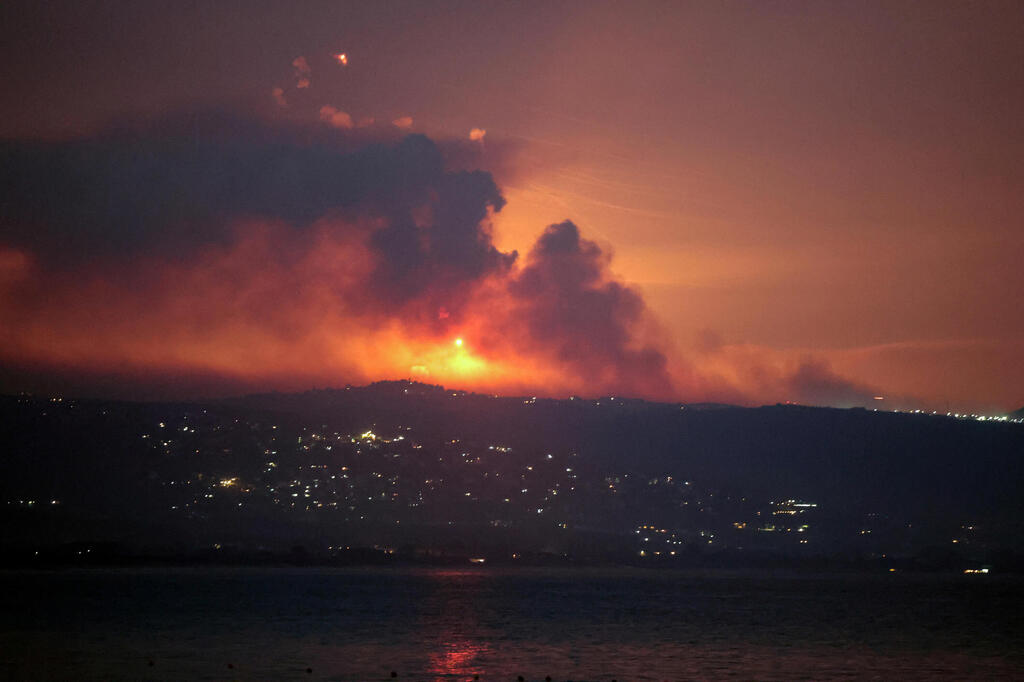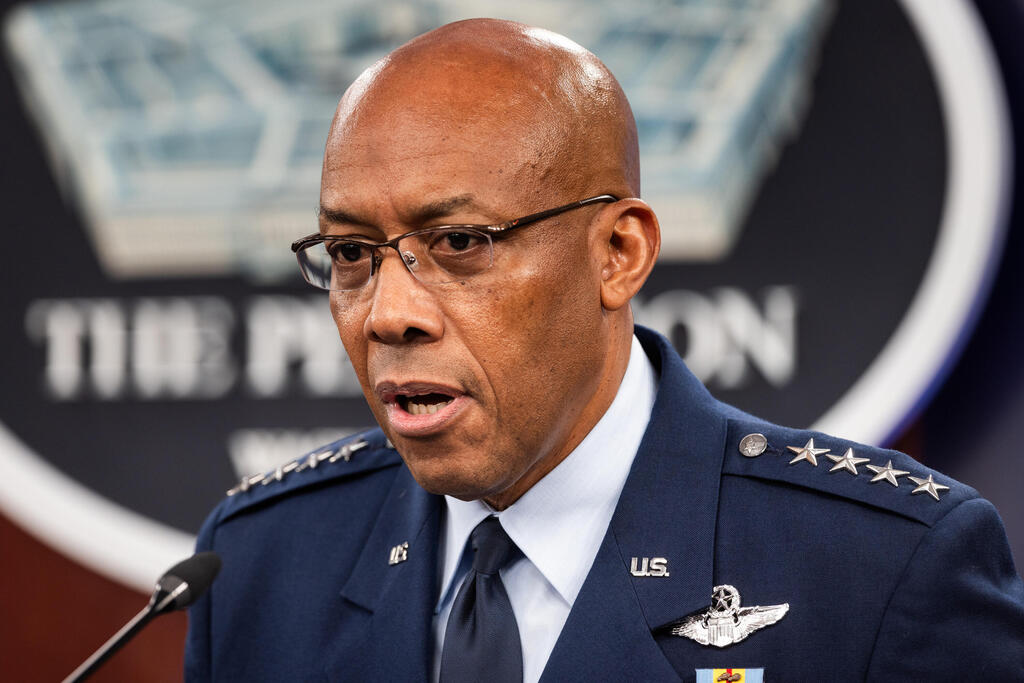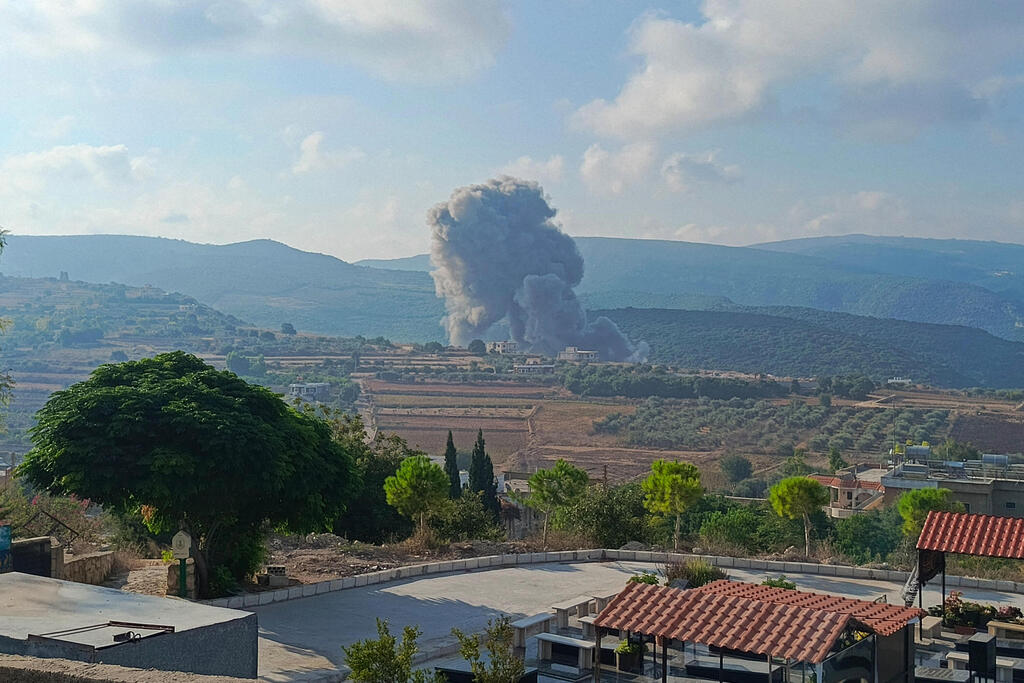Getting your Trinity Audio player ready...
Following Israel's "preventive" strike against Hezbollah on Sunday, the U.S. and Israel reported they were content with the latter's limited operation amid Hezbollah's heavy rocket fire. With the help of Britain, France, Germany, and especially the U.S., Israel wishes to avoid a regional war and reach an agreement with Hezbollah, paving the way for a hostage deal with Hamas.
The Americans agreed with Israel that Hezbollah was going to launch a large-scale attack at Israel around 05:00 a.m., and therefore did not oppose the the Israeli strike against the terror organization. However, they requested Israel to be satisfied and not broaden the attack so as not to escalate the situation further. In recent months, the U.S. has stressed that if Israel starts a campaign in Lebanon, it will not back it, meaning that the American-backed attack indicated the need for pre-emptive measures.
U.S. President Joe Biden followed the events in Israel and Lebanon and remains committed to Israel's security. "President Biden is closely following events in Israel and Lebanon. Under his guidance, senior U.S. officials are in continuous contact with their Israeli counterparts." He added: "We continue to support Israel's right to defend itself, and we will continue to work for regional stability," said a spokesman for the National Security Council at the White House.
Although civilian targets were hit, the Americans believe that the fact that Hezbollah limited its response to military targets and refrained from attacking Tel Aviv as well as civilian targets indicates that their deterrence has proven itself and Biden's "Don't" message has worked.
The American Chairman of the Joint Chiefs of Staff, Charles Brown, arrived in Israel on Sunday and will meet with the Chief of Staff, Lieutenant General Herzi Halevi, and Defense Minister Yoav Gallant during his visit. His arrival projects deterrence and discourages actors from attacking Israel - primarily Iran, the Houthis, and the Shiite militias in Iraq. Meanwhile, Israel and the U.S. understand that an Iranian strike is expected. that the Iranian response will not come today or tomorrow, but has not gone away either.
The Americans believe they can take advantage of this rare opportunity to advance an agreement between Israel and Hezbollah to push for a hostage deal, two interconnected goals. Since Saturday, Minister Gallant has spoken three times with U.S. envoy Amos Hochstein and twice with Defense Secretary Lloyd Austin, once before the strike and once after it. An Israeli security official said that Israel is also trying to take advantage of the tactical achievement to promote an agreement with Hezbollah.
An Israeli official said the government decided to adhere to the American request not to escalate the situation with Hezbollah, adding that the only talk about an agreement was about Security Council Resolution 1701 which is not being implemented.
"This gives Israel a stronger position going forward. After all, there were dilemmas about whether to strike and we are content with the results, which did not lead to a regional war contrary to warnings. This is a message of strength for those watching such as Iran, Yemen, and Beirut. This will place Israel in a stronger position against Hezbollah and also strengthens the willingness to make decisions," said the official. He explained that "this also affects the deal. Following the round, Sinwar realizes that he has neither the flood nor al-Aqsa."
Meanwhile, Foreign Minister Israel Katz instructed UN envoy Danny Danon to express Israel's concern over Hezbollah's planned aggressions, to the Security Council.
In the letter that will be sent to the UN, Danon will stress that "more than 60 thousand citizens in northern Israel were displaced from their homes due to the attacks. Lebanon and Hezbollah, directed by Iran, are responsible for the deterioration of the security situation on the northern border. There is an urgent need to demilitarize southern Lebanon from illegal weapons and dismantle Hezbollah. Israel will maintain its right to defend itself and its citizens, and will take steps in accordance with international law." The letter also calls on the Security Council to "condemn the actions of Hezbollah and Iran and ensure that Security Council Resolution 1701 is fully enforced."






